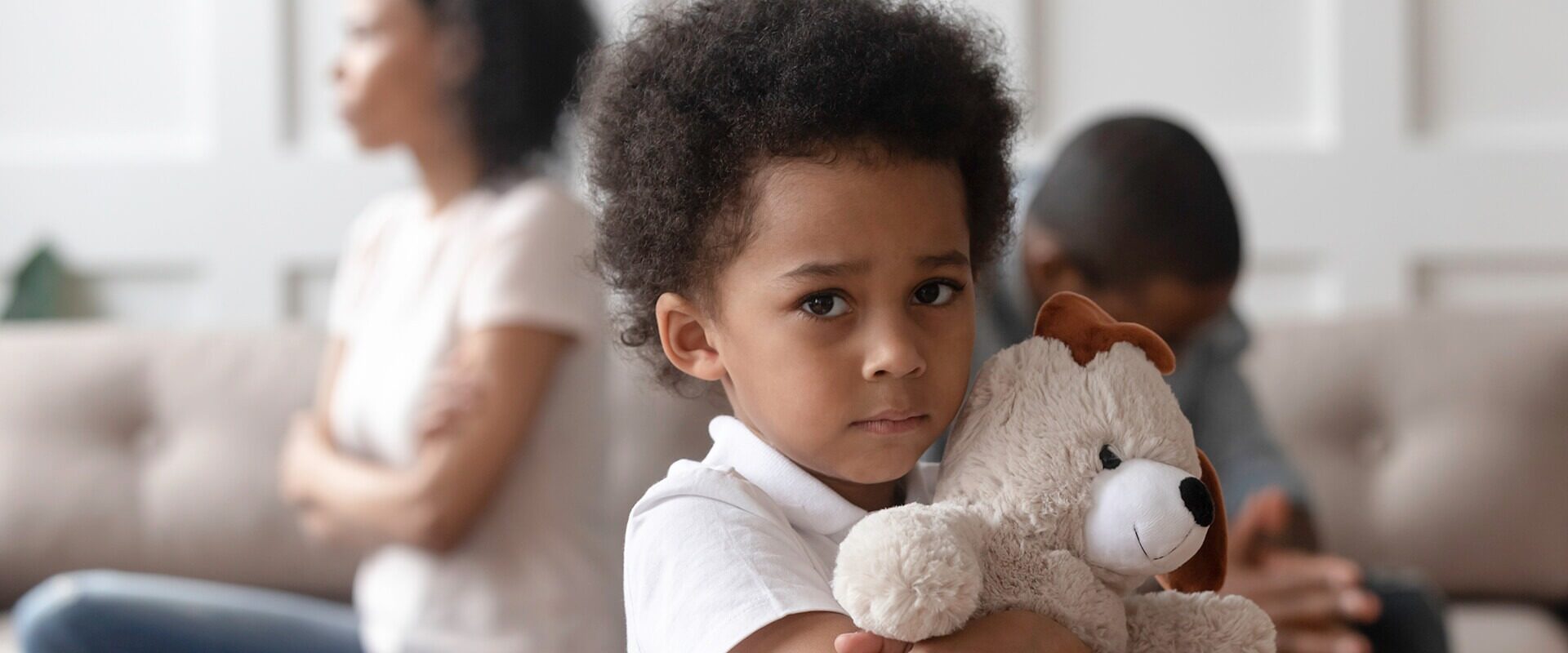The Virginia Beach and Hampton Roads region – home to some of the largest and most vibrant communities in the state – sees its fair share of complex family law matters, especially when it comes to child custody. Divorce alone is a deeply emotional experience. Adding the sensitive issues of child custody and visitation can make an already difficult time feel overwhelming to parents navigating family law matters.
At Melone Hatley, P.C., we understand that nothing matters more than your children’s well-being. You want to protect them and ensure they have the best possible custody arrangement to support their future. Our top-rated Virginia Beach child custody lawyers are here to guide you through this challenging chapter while fighting for what matters most – your children.
Understanding Child Custody in Virginia

When it comes to child custody, Virginia law’s top priority is the best interests of the child legal standard. This standard guides all custody and visitation decisions, ensuring decisions are made considering the child’s emotional and physical needs above all else.
Understanding the different types of custody and how the court makes its decisions will be essential if you are going through a divorce or facing a custody dispute.
What Are the Different Types of Child Custody in Virginia Beach?
Virginia courts recognize two primary categories of custody: legal custody and physical custody. Each can be awarded jointly or solely, depending on each family’s circumstances.
Legal Custody
Legal custody refers to a parent’s right to make major decisions about the child’s upbringing, including their education, medical care, religion, and other important matters. Parents often share joint legal custody unless the court finds a compelling reason to award it to one parent only.
Physical Custody
Physical custody determines where the child will live, and which parent is responsible for their day-to-day care. The court may award
- Joint physical custody, where the child spends significant time with both parents
- Sole physical custody, where the child primarily resides with one parent and the other may have visitation rights
It is important to understand that joint custody does not always mean a 50/50 split. While it means that both parents share time with the child, the arrangement can vary in structure:
- Primary custody refers to one parent having the child most of the time while the other has scheduled visitation. This arrangement still qualifies as joint custody if the non-primary parent has substantial time and involvement with the child.
- Shared custody means the child spends significant time with both parents, often close to a 50/50 split, and both are actively involved in daily parenting responsibilities.
- Split custody refers to each parent having full-time physical custody of different children. This arrangement, while rare, is sometimes used when siblings have different needs.
These variations depend on what the court believes to be in the child’s best interests.
How Virginia Courts Decide Custody Cases

Virginia courts evaluate a number of factors when determining which custody arrangement best serves the child’s needs and well-being.
Outlined in Virginia Code § 20-124.3, these factors include:
- The age and physical and mental condition of the child
- Each parent’s physical and mental condition
- The existing relationship between each parent and the child
- Each parent’s willingness to support the child’s relationship with the other parent
- The needs of the child, including sibling relationships and extended family
- The role each parent has played in the child’s upbringing
- Each parent’s ability to actively support and care for the child
- Any history of family abuse, substance abuse, or neglect
- The reasonable preference of the child if the child is of sufficient age and maturity
Ultimately, the court aims to preserve the child’s sense of security, continuity, and emotional health by encouraging both parents to participate in the child’s life – unless doing so would put the child at risk.
Virginia Beach Child Custody
Lawyer Near Me
Visitation Rights in Virginia

When one parent is awarded primary physical custody, the other parent is typically granted visitation rights, also referred to as parenting time. This allows the child to maintain a meaningful relationship with both parents, even when the child lives primarily with one parent.
Every visitation decision is tailored to the specific circumstances of the case and the needs of the child. Judges consider schedules that provide the most consistency and routine, especially for younger children. Courts also consider parents’ work schedules, the distance between homes, and the child’s daily routines when determining the best visitation arrangement.
Parenting time schedules commonly provide for arrangements that include
- Weeknight or weekend visits
- Extended summer or holiday schedules
- Virtual visits and phone calls when in-person time isn’t possible
- Supervised visitation by a neutral third party when safety is a concern
Can Parents Create Their Own Custody Agreement in Virginia Beach?
Parents in Virginia are encouraged to work together to create a custody arrangement that suits their family’s needs without leaving the decision entirely in the hands of the court.
Working together as co-parents offers many benefits, including
- Giving you more control over the outcome
- Reducing conflict and emotional stress
- Creating a customized parenting plan that will fits both households
- Providing the foundation for a healthier co-parenting relationship
- Prioritizing your child’s well-being
If both parents are able to cooperatively plan for their own custody and visitation arrangements, this is often the fastest and most effective path. However, even a mutual agreement must still be approved by the court to become legally binding.
The court will review the proposed arrangement to ensure it meets the legal standard of serving the child’s best interest. If the agreement is balanced, safe, and considers the child’s needs, the court is likely to approve it and incorporate it into a formal custody order.
At Melone Hatley, P.C., our experienced Virginia Beach custody attorneys help co-parents draft, review, and file custody agreements that reflect both parents’ goals and the child’s best interest, while complying with Virginia law.
What is the Role of a Guardian ad Litem in a Custody Dispute?
In some custody cases, especially those involving concerns about the child’s well-being, allegations of abuse, or other conflicts, the court may appoint a Guardian ad Litem (GAL). A GAL is a licensed attorney specially trained and certified to represent the child’s best interests in custody disputes.
While the Guardian ad Litem does not have decision-making power, they investigate the family situation and make recommendations to the court based on what they believe will best serve the child.
A GAL’s responsibilities may include:
- Interviewing both parents and the child
- Visiting the home and observing parent-child interactions
- Speaking with teachers, counselors, doctors, or other involved professionals
- Reviewing medical, educational, or criminal records
- Attending court hearings and providing a written or oral report to the court
The GAL’s opinion carries significant weight, especially when parents cannot agree on custody, and the judge has limited firsthand insight into the family’s dynamic. However, while the court gives weight to the Guardian ad Litem’s recommendations, they are not final or binding. If a parent disagrees with the GAL’s report, they have the right to present their own evidence, call witnesses, and explain their side to the judge. Ultimately, it is the judge, not the GAL, who makes the final custody decision based on the evidence presented.
Can Custody Orders Ever Be Changed?
Life doesn’t remain static after a custody order. If something significant has changed in your life or that of your child, either parent may be able to request a custody order modification. However, you must show that a “material change in circumstances” has occurred since the last order to change custody or visitation in Virginia.
Common examples of a “material change” include:
- One parent relocating or moving out of state
- A change in the child’s educational or medical needs
- A change in a parent’s work schedule impacting their availability
- Concerns about the child’s safety or well-being
As in an original custody order, the court will once again consider the best interest of the child and may revise the arrangement accordingly.
Can Parents Change Their Custody Arrangements Without Involving the Court?
Some parents choose to adjust their custody schedule informally without going back to court. While this may seem convenient at the time, it can create future problems.
An informal or verbal agreement is not legally enforceable, which means if one parent changes their mind or violates the new arrangement, the court will only enforce the original custody order on record. This can lead to confusion, conflict, and even legal consequences.
If both parents agree to a new arrangement, it’s always best to have the agreement reviewed and formally modified by the court. This protects both parents and ensures consistency and stability for the child.
Common FAQs About Child Custody and Parenting Time in Virginia
Q: Can my child choose which parent to live with?
A: While children in Virginia do not get to decide where they live, the judge may consider their “reasonable preference” — particularly if the child is mature enough to express it. This and all other factors will be considered when determining the child’s best interests.
Q: What is supervised visitation, and when is it used?
A: Supervised visitation means the non-custodial parent can only visit with the child while another responsible adult or professional is present. Supervised visitation is typically ordered when there are concerns about the child’s safety, such as in cases where there is a history of abuse, neglect, or substance abuse.
Q: How does the court handle parenting time when one parent lives far away?
A: In long-distance custody cases, the court may grant extended visits during school breaks, holidays, and summer vacations. Judges may also encourage virtual visitation via phone or video calls to help maintain the parent-child relationship between in-person visits.
Getting Trusted Help with Your Virginia Beach Child Custody Case
Navigating a child custody matter is never easy, especially when your family’s future is on the line. Whether you’re navigating a divorce or custody dispute, attempting to create a parenting plan, or seeking a modification of an existing court order, you shouldn’t attempt this without legal guidance.
At Melone Hatley, P.C., our experienced Virginia Beach child custody attorneys are here to protect your rights and help you secure the best custody arrangements for you and your child. Your family’s future matters. Learn how we can protect your parental rights and help you move forward with confidence. Call us today at (757) 296 – 0580 or schedule a free consultation with one of our Client Services Coordinators.

 (757) 296-0580
(757) 296-0580






















